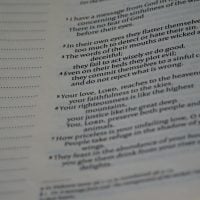Deadline: 14-Nov-22
The United States Agency for International Development (USAID) seeks applications from qualified entities to reduce threats to biodiversity and improve conservation, develop sustainable, economic opportunities for the poor; and improve environmental governance.
Madagascar’s ability to maintain its biodiversity is rapidly diminishing due to terrestrial and marine habitat degradation linked to overexploitation of natural resources, unsustainable livelihood activities, and weak governance. Evidence and experience gained through the last four years of USAID’s Mikajy and Hay Tao activities show that the most pervasive threats that impact marine, freshwater, and terrestrial ecosystems and species are:
- Land use change due to unsustainable agricultural practices (including slash and burn), expanding road access and development, fires, and conversion for aquaculture; and
- Natural resource extraction through widespread wood harvesting (for charcoal and firewood), illegal and unsustainable logging, unsustainable non-timber forest product harvesting, unsustainable collection of wildlife for trade, unsustainable subsistence hunting, overfishing and destructive fishing practices, and mining.
Goals
- The main goals of the new activities are to:
- Reduce threats to biodiversity and improve conservation;
- Develop sustainable, economic opportunities for the poor; and
- Improve environmental governance.
Strategic Approaches
- These goals should be accomplished through five main Strategic Approaches (SA) to be led by the partners. See these links for the situational analysis and theory of change underpinning these SA’s. These may be refined during co-creation.
- SA1: Improve sustainable management of natural resources, protected areas (including innovative financing, climate financing, payments for ecosystem services), and build complimentary natural resource production for household uses;
- SA2: Promote sustainable and diversified livelihoods at scale while also supporting basic human needs;
- SA3: Improve national, regional and local-level governance, advocacy and anti-corruption efforts around natural resource management;
- SA4: Increase local resilience to prepare for and adapt to climate and other shocks;
- SA5: Strengthen land and/or marine tenure policy implementation and land/marine use planning.
Funding Information
- Estimated Total Program Funding: $40,000,000
- Award Ceiling: $40,000,000.
Eligibility Criteria
Eligibility for this NOFO is not restricted for the award(s) for marine and terrestrial activities. The local entity set-aside award is restricted to local entities. Faith-based organizations are eligible to apply for federal financial assistance on the same basis as any other organization and are subject to the protections and requirements of Federal law.
- Responsibility of Applicant
- In order for an award to be made under this opportunity, the USAID Agreement Officer must make an affirmative determination that the applicant is “responsible,” as discussed in ADS 303.3.9. This means that the Applicant:
- Possesses or has the ability to obtain the necessary management competence to plan and carry out the assistance program to be funded, and that the applicant will practice mutually agreed upon methods of accountability for funds and other assets provided by USAID;
- Has a satisfactory record of performance;
- Does not have active exclusions in the System for Award Management (SAM) (beta.sam.gov);
- Does not appear on the Specially Designated Nationals (SDN) and Blocked Persons List maintained by the U.S. Treasury for the Office of Foreign Assets Control, sometimes referred to as the “OFAC List” and
- Is not listed in the United Nations Security designation list.
- In order for an award to be made under this opportunity, the USAID Agreement Officer must make an affirmative determination that the applicant is “responsible,” as discussed in ADS 303.3.9. This means that the Applicant:
- Local Entities
- As defined in ADS 303.6, Local Entities: an individual or organization that:
- Is legally organized under the laws of a country that is receiving assistance from USAID;
- Has its principal place of business or operations in a country receiving assistance from USAID;
- Is majority-owned by individuals who are citizens or lawful permanent residents of a country receiving assistance from USAID; and
- Is managed by a governing body, the majority of whom are citizens or lawful permanent residents of the country receiving assistance from USAID.
- As defined in ADS 303.6, Local Entities: an individual or organization that:
For more information, visit https://www.grants.gov/web/grants/view-opportunity.html?oppId=344080









































